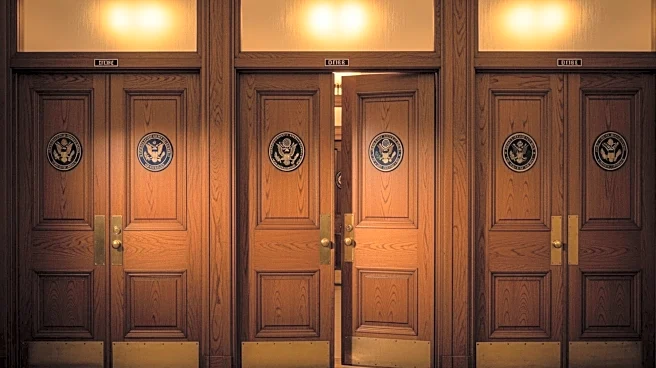What's Happening?
Defense Secretary Pete Hegseth has introduced unprecedented restrictions on press access to the Pentagon building. This move has sparked discussions among journalists and media outlets about the implications for transparency and freedom of the press.
Barbara Starr, a former Pentagon correspondent for CNN, commented on the situation, suggesting that Hegseth should prepare for potential backlash due to these restrictions. The decision marks a significant shift in how the Pentagon interacts with the media, raising concerns about the future of press freedom in covering defense-related matters.
Why It's Important?
The restrictions on press access to the Pentagon could have far-reaching implications for media coverage of defense and military operations. Limiting access may hinder journalists' ability to report on critical issues, potentially affecting public understanding and oversight of military activities. This move could set a precedent for other government agencies, impacting transparency and accountability. Stakeholders such as media organizations, journalists, and civil rights groups may challenge these restrictions, arguing that they undermine democratic principles and the public's right to information.
What's Next?
The media and civil rights organizations are likely to respond to these restrictions, possibly seeking legal avenues to challenge the decision. Journalists may adapt by finding alternative ways to gather information, such as relying on sources outside the Pentagon. The situation may prompt discussions in Congress about the balance between national security and press freedom, potentially leading to legislative action to protect media access. The Pentagon's approach to press relations may evolve based on public and political reactions.















